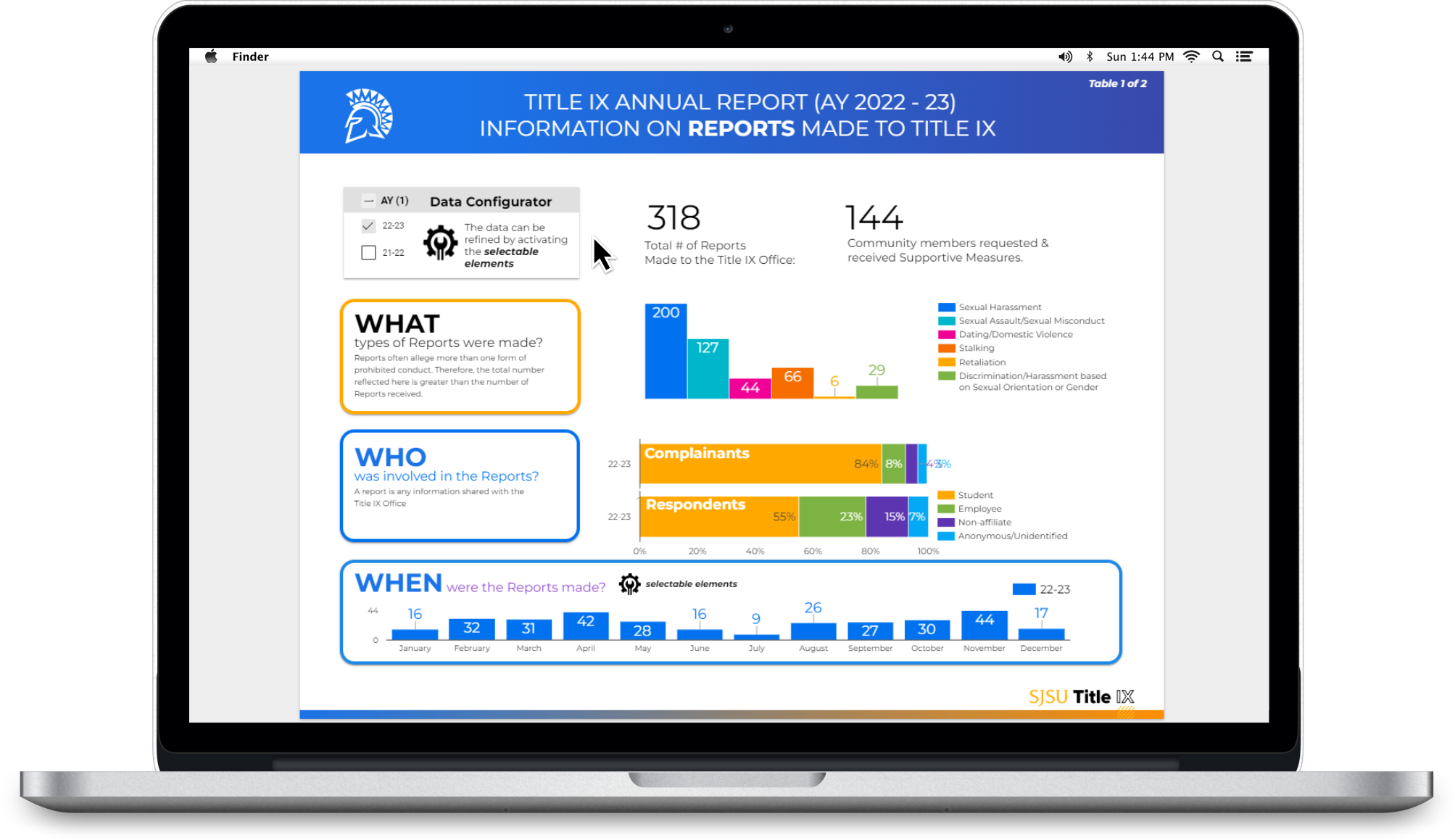
Reporting an Incident
If you or someone you know has experienced discrimination, harassment, or retaliation based on a protected status (including age, disability, gender, gender identity, gender expression, genetic information, marital status, medical condition, nationality, race or ethnicity, religion, sexual orientation, and veteran or military status), we encourage you to file a report or contact the Office for Title IX and Equal Opportunity for resources and assistance. Sex-based discrimination and harassment includes sexual harassment, sexual misconduct, sexual exploitation, dating violence, domestic violence, stalking, and pregnancy and parenting discrimination.
Resources
Title IX at SJSU

There is an important distinction between a “report and a “complaint.” A report is any information received by the then-Title IX Office about suspected Title IX misconduct, and can be made by anyone who is aware of that information. A report could come from the person who experienced the harm, a concerned community member, or a Responsible Employee. A complaint is an official request for an investigation and may only be made by the person who experienced the harm, or the university. A complaint results in an investigation where the facts, taken as true, establish a possible violation of the CSU Nondiscrimination Policy. Because we generally only initiate an investigation upon request, the number of reports reflected in the data is greater than the number of investigations opened by the Title IX Office.


